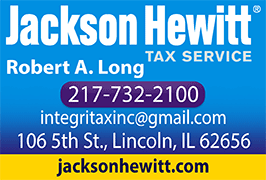Reggae the seal uses rubber ducks for daily enrichment training at
Boston aquarium
[February 21, 2026]
By LEAH WILLINGHAM
BOSTON (AP) — It looks like pure play: a harbor seal gleefully chasing a
rubber duck. But for Reggae at the New England Aquarium in Boston, the
toy is part of a training routine meant to keep him learning.
When the 33-year-old Atlantic harbor seal plays fetch with the rubber
duck in his habitat built to mimic the region’s rocky shore, he’s
practicing memory, problem-solving and focus — skills trainers say are
essential to keeping animals in human care mentally and physically
engaged.
The routine recently drew attention on social media after the aquarium
posted video of Reggae tightly hugging the duck while floating on his
belly. In another moment, he sits on a rock with the duck tucked under
his flipper, appearing to pat its head.
Rebekah Miller, the aquarium’s manager of the pinniped area overseeing
the Atlantic harbor seals and California sea lions, said enrichment is
central to the seals’ daily lives.
“He can use his great vision to look around the habitat, find these new
items, and he can also use his other senses to kind of explore,” she
said. “It’s a great way to challenge our animals. We want to create
challenges for them and really allow them to use those problem-solving
skills that they have.”

The sessions are designed not just to stimulate the seals cognitively
but to strengthen relationships with trainers, with even physical play —
manipulating objects with their front flippers or moving a toy through
the water — becoming part of that challenge.
On a recent morning, trainer Liz Wait stood at the edge of the exhibit
with a silver bucket of fish clipped to her waist, tossing small rewards
as Reggae followed cues.
“Target!” she called, pointing to one duck. Reggae swam over and nudged
it with his nose. She repeated the cue with another duck.
“Hold it!” she said, placing a rubber duck on his white belly. Reggae
lifted his flippers to wrap them around it.
“Are you having fun with your ducks?” she asked as he climbed onto a
rock, resting his chin atop one of the toys.
“You want to say, ‘Bye, everybody?’” Wait asked, waving her hand. Reggae
hoisted his right flipper in response and returned a salute from his
trainer. “Good, Bubba."
[to top of second column]
|

Reggae, a 33-year-old Atlantic Harbor seal, clutches a rubber duck
during a training session at the New England Aquarium, Friday, Feb.
20, 2026, in Boston. (AP Photo/Charles Krupa)

Miller said Reggae appears to be unfazed by all the attention.
“We describe his personality as very mellow. He’s a very easygoing
guy, he goes with the flow and he loves attention from people,” she
said.
One family waved as Reggae swam toward the glass to retrieve a duck
that Wait tossed near them.
“You never expect a seal to hug a rubber ducky,” said 13-year-old
Tom Smith of Boston, who was visiting with his mother and younger
brother during school vacation week.
The aquarium’s Atlantic harbor seals are among its most recognizable
residents, living in a 42,000-gallon outdoor exhibit on the front
plaza. The current seals were born at the aquarium to parents that
were themselves longtime residents.
Many trace their lineage to Hoover, a harbor seal born in 1971 who
was raised by a Maine fisherman after he lost his mother. When it
became too expensive for the fisherman's family to feed him, Hoover
was brought to the aquarium, where he later gained national
attention for mimicking phrases such as “hello there” and “get out
of here” in a gruff New England accent.
Today, seals at the aquarium often live beyond the roughly 25-year
lifespan typical in the wild. Several have surpassed 30 and even 40
years, longevity the institution attributes to veterinary care,
structured training and daily enrichment.
All contents © copyright 2026 Associated Press. All rights reserved
 |